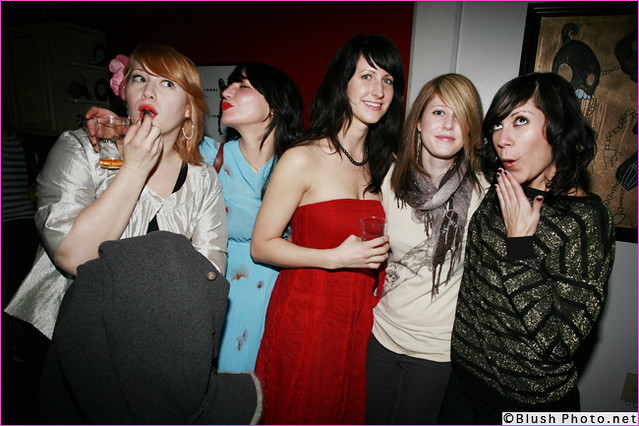
What Do You Call a Woman Who Uses Men? (And the Men Who Use Women Too)
Language is powerful. The words we choose reveal not only how we see others, but also the double standards baked into our culture. When it comes to attraction, charm, and seduction, society has built a colourful vocabulary. Some words are flattering, others sting, and many show a gender bias that’s been around for centuries.
So, what do you call a woman who uses men’s attraction to get what she wants? And just as important — what do you call a man who uses women’s attraction to his advantage? Let’s explore both sides of the coin, from polite and poetic descriptions to the sharp-edged insults, and end with a reminder about what actually matters in relationships.
What Do You Call a Woman Who Uses Men?
When talking about women who use their attractiveness to gain power, attention, or resources, society gives us a whole arsenal of terms.
Polite or Neutral Words
These words often highlight skill, confidence, or natural charm rather than manipulation:
- Charismatic – She naturally draws people in.
- Charming – Her presence makes others want to say yes.
- Seductress – Alluring, without necessarily being negative.
- Enchantress – Carries a mystical, almost magical vibe.
- Femme Fatale – The glamorous archetype of literature and film noir.
- Siren – Like the mythical creatures who lured sailors, irresistible and poetic.
- Savvy / Strategic – Suggests intelligence in how she uses her strengths.
👉 These terms tend to celebrate feminine power, painting her as captivating rather than conniving.
Impolite or Critical Words
When attraction is seen as manipulative, harsher words come out:
- Gold Digger – Suggests she’s motivated by money or status.
- Manipulator – Implies dishonesty or hidden motives.
- Man-Eater – Figuratively “devours” men emotionally or financially.
- User – Blunt and dismissive, stripping away nuance.
- Tease – Suggests she entices without intending to deliver.
- Schemer – Cunning and self-serving.
- Vamp – An old-fashioned insult that implies draining energy.
👉 These labels judge harshly, reducing her behavior to exploitation rather than skill.
Playful or Tongue-in-Cheek Words
Between admiration and accusation, there’s a middle ground where humor rules:
- Heartbreaker – Romantic, though leaves bruised egos behind.
- Flirt – Teasing, often seen as fun.
- Man Magnet – Attraction seems to follow her everywhere.
- Queen Bee – Central figure of male attention.
- Lady Hustler – Suggests she’s smartly working the system.
👉 Said with a smile, these terms can sound more like compliments than critiques.
What Do You Call a Man Who Uses Women?
Flip the script, and we get a fascinating comparison. When men use charm, looks, or sexual pull to gain advantage, the language often sounds less judgmental and sometimes even admiring.
Polite or Neutral Words
- Charmer – Smooth with words.
- Ladies’ Man – Popular with women, often framed positively.
- Casanova – Romantic adventurer, linked to a historical figure.
- Romeo – Shakespeare’s archetype of passionate love.
- Prince Charming – The fairy-tale ideal.
- Suave – Polished, sophisticated, and attractive.
- Silver-Tongued – Persuasive and clever.
👉 Notice the tilt? Many of these words paint the man as desirable, not dangerous.
Impolite or Critical Words
Still, when his motives are seen as shallow or exploitative, the sharp words come out:
- Player – Pursues multiple women without commitment.
- Womanizer – Sees women as conquests.
- Playboy – Lifestyle built on indulgence and superficiality.
- Don Juan – A legendary seducer, but with a darker reputation.
- Manipulator – Strings women along.
- Smooth Operator – Clever but sly, not always trustworthy.
- Gigolo – A man supported financially by a woman in exchange for intimacy.
- User – Same blunt dismissal as applied to women.
👉 These terms bite, but often with less venom than their female equivalents.
Playful or Tongue-in-Cheek Words
Society also softens male seduction with playful terms:
- Heartthrob – Adored for looks and charm.
- Lady Killer – Exaggerated, meaning he leaves women swooning.
- Dreamboat – Old-school, but flattering.
- Hunk – Attractive for his physique.
- Bad Boy – The rebel archetype women “can’t resist.”
- Charisma Machine – A humorous modern compliment.
👉 Men often get a cheeky pat on the back, where women get harsher scrutiny.
Why the Double Standards?
The language itself exposes a cultural bias:
- A woman might be called a gold digger if she seeks a wealthy man, while a man seeking the same arrangement might be admired as a playboy.
- A woman who entices without commitment is a tease, while a man doing the same is a player — often with a wink of approval.
- Society tends to praise men for conquest while criticizing women for influence.
This imbalance is rooted in centuries of social norms: men rewarded for chasing, women shamed for choosing. Thankfully, conversations like these are bringing more awareness to the bias.
Beyond the Labels
At the core, people use what they have — beauty, charm, intelligence, wealth, status, connections. That’s human. The real question isn’t whether someone uses attraction, but how.
- When it’s done openly and playfully, it’s confidence.
- When it’s manipulative or exploitative, it becomes harmful.
That’s why a woman might be called an enchantress in one breath and a schemer in another, or why a man might be a Casanova to some and a womanizer to others. The behavior is the same — the label reveals the judgment.
FAQs
Q: What do you call a woman who uses men?
A: It ranges from polite terms like charming or femme fatale, to critical ones like gold digger or tease.
Q: What do you call a man who uses women?
A: Words include ladies’ man, Casanova, or charmer (admiring), as well as player, womanizer, or gigolo (critical).
Q: Why are the terms different for men and women?
A: Cultural double standards. Men often get admiration for seduction, while women face harsher labels for similar behavior.
Q: Is using attraction always manipulative?
A: Not necessarily. Confidence and charm can be positive. The problem is deception or exploitation.
Conclusion: Don’t Chase Pretty Faces, Look for Warm Hearts
Attraction is powerful — it can open doors, change decisions, and influence outcomes. But beauty and charm alone are shallow foundations for relationships. The labels we explored — femme fatale, gold digger, player, Casanova — all point to fleeting games of desire and influence.
What lasts isn’t the surface sparkle but the substance beneath it. Looks fade. Smooth talk grows old. The only thing that keeps a bond strong is the heart.
So here’s the truth:
- Don’t chase pretty faces alone — they turn heads but don’t build homes.
- Don’t be dazzled by clever charm without depth.
- Do seek out people with warm hearts, steady values, and honest intentions.
In the end, the best label you could ever use for a partner isn’t player or femme fatale. It’s simply: a good person.
Or as the old saying goes: “Pretty is what you see; beauty is what you feel when someone loves you well.”





